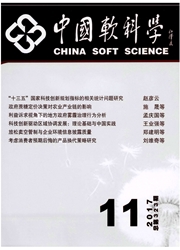

 中文摘要:
中文摘要:
根据中国1990-2008年各省的数据,本文使用动态面板模型对引起中国居民消费需求不足的各种原因进行验证。实证结果表明:居民收入占GDP的比重持续下降、由计划生育导致的少儿扶养比持续下降、不断攀升的行政管理费用、住房制度改革是导致我国居民消费率下降的最主要因素。其中收入GDP比、人口结构变迁、行政费用支出占总财政支出的比重和住房制度改革导致的居民消费率下降约7.1个百分点。
 英文摘要:
英文摘要:
Using the provincial- level panel data from 1990 to 2008, this paper adopts dynamic panel model to test the reasons which cause insufficiency of house- hold consumption demand in China. The empirical results show that the declining proportion of household income in GDP, the declining young dependency related to One- Child policy, the rising administrative expenditure and the housing reform are the main determinants for the declining of the household consumption in GDP. Quantitatively, the share of household income in GDP, demographic change, administrative expenditure in total fiscal expenditure and housing reform caused the decline of household consumption in GDP by about 7.1 percentage points during this period.
 同期刊论文项目
同期刊论文项目
 同项目期刊论文
同项目期刊论文
 期刊信息
期刊信息
